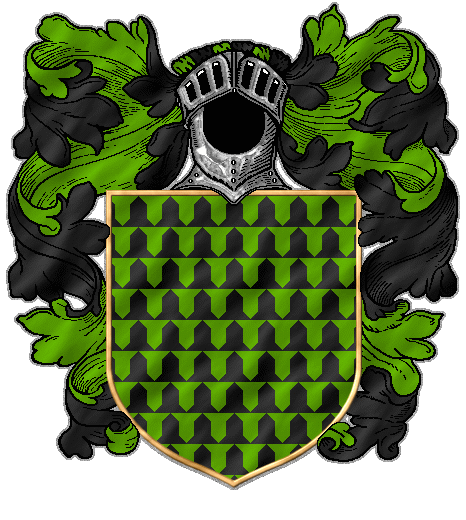/valley-pc-game-cheats.html. Game monetization firm Beamable has filed for Chapter 11 bankruptcy protection this week, but in an interview, CEO Jon Radoff said the company still plans to operate. Radoff said the company hopes to go through a quick bankruptcy process and clean up its balance sheet so it can continue its work handling server and monetization tasks for game developers.
“We are not shutting down,” he said in an interview with GamesBeat. “We are keeping our employees and last month was the best month we had as Beamable.”
Game developer Tilting Point has acquired the popular mobile game Star Trek Timelines from Disruptor Beam. Star Trek Timelines is a hugely popular character-collection role-playing game (or CCRPG) with 8 million downloads that’s made more that $100 million to date. Now, according to a piece from VentureBeat, original developers Disruptor Beam have sold the game - in its entirety - to. By proceeding, you agree that our Terms of Service and Privacy Policy apply. The above information will be used to create your public forums profile.
The Framingham, Massachusetts-based Beamable, formerly known as Disruptor Beam, filed in U.S. Bankruptcy Court in Worcester, Massachusetts, saying it had $3.4 million in liabilities and $637,987 in assets. The creditors include a venture fund that is owed $1 million; Silicon Valley Bank, which processed the company’s Paycheck Protection Program payments and is owed $900,000; and equipment finance firms owed $920,000.
Above: Beamable’s live game services.
As Disruptor Beam, the company made games based on TV shows such as Game of Thrones, The Walking Dead, and Star Trek. It sold off Star Trek: Timelines to Tilting Point in May. At that time, 19 of Disruptor Beam’s employees went to work for Tilting Point. And about 14 stayed with Disruptor Beam, which pivoted as Beamable with a focus on monetization and server tasks. About 10 people were laid off in the transition.
Radoff said the company had some obligations it no longer needed during the pandemic, such as a lease on offices that could house 150 people that it had for a couple of years. The company no longer needs that space, and it hasn’t been able to use it during the pandemic.
“The $3 million-plus in liabilities is a lot of liabilities to carry on the balance sheet of a company that is rebooting,” Radoff said. “The reality of Disruptor Beam was that we built some great games, but we weren’t really able to turn that into a sustainable business where we could crank out hit after hit. But we did create this very valuable technology platform along the way. We will clean up the balance sheet, and then compete like any other startup.”
Radoff said the company is seeking to reorganize under the new Subchapter V of the Chapter 11 law, which enables companies to emerge from bankruptcy more quickly. As a result of the COVID-19 pandemic, the CARES act expanded the Small Business Reorganization Act (SBRA) to include companies such as Beamable.
Under the process of a Subchapter V restructuring, the court appoints a trustee. Beamable will work with the trustee and remaining creditors to propose a restructuring plan, Radoff said. This will provide for a streamlined and efficient process that will minimize distraction to the business and permit the employees to focus on providing service to customers, Radoff said.
He said the company has the support of its investors, but he noted that having a clean balance sheet will help position it as a startup that could, in the future, once again raise some money.
“The last thing our investors wanted was a messy balance sheet,” Radoff said. “We hope to get through this in a short time. We’re keeping our employees. We think this is in everybody’s collective interest.”
Radoff said Star Trek: Timelines uses Beamable, as does East Side Games’ Archer: Danger Phone. He said new customers are signing up at about a rate of one per day for the company’s software-as-a-service subscription. Beamable works with Unity’s game engine. It competes with Microsoft’s PlayFab, GameSparks, and Heroic Labs.
“We see our service as like a Unity game engine for the server,” Radoff said. “We handle the social and the monetization, making that easier for developers. And people really like what we are doing.” /subway-surfers-pc-game-cheats.html.
VentureBeat
VentureBeat's mission is to be a digital townsquare for technical decision makers to gain knowledge about transformative technology and transact. Our site delivers essential information on data technologies and strategies to guide you as you lead your organizations. We invite you to become a member of our community, to access:Disruptor Beam Ma

- up-to-date information on the subjects of interest to you,
- our newsletters
- gated thought-leader content and discounted access to our prized events, such as Transform
- networking features, and more.
Disruptor Beam Jobs
It’s one thing hearing constant rumours and allegations about scripting, but seeing hacks for unlimited gold/silver, double XP etc blatantly promoted by Facebook via “people also shared” links is too much. It’s dragging the whole game further into disrepute (and is possibly some kind of scam potentially targeting younger or more gullible players and posing a risk to their privacy and identity).

Disruptor Video Game
What can DB do to reassure rule-abiding players that cheats like this are not giving unscrupulous players an unfair advantage, and how are you working towards identifying vulnerabilities in the code and shutting them down?